Progarchives.com has always (since 2002) relied on banners ads to cover web hosting fees and all.
Please consider supporting us by giving monthly PayPal donations and help keep PA fast-loading and ad-free forever.
/PAlogo_v2.gif) |
|
Post Reply 
|
Page <1 5678> |
| Author | |
Dayvenkirq 
Forum Senior Member 
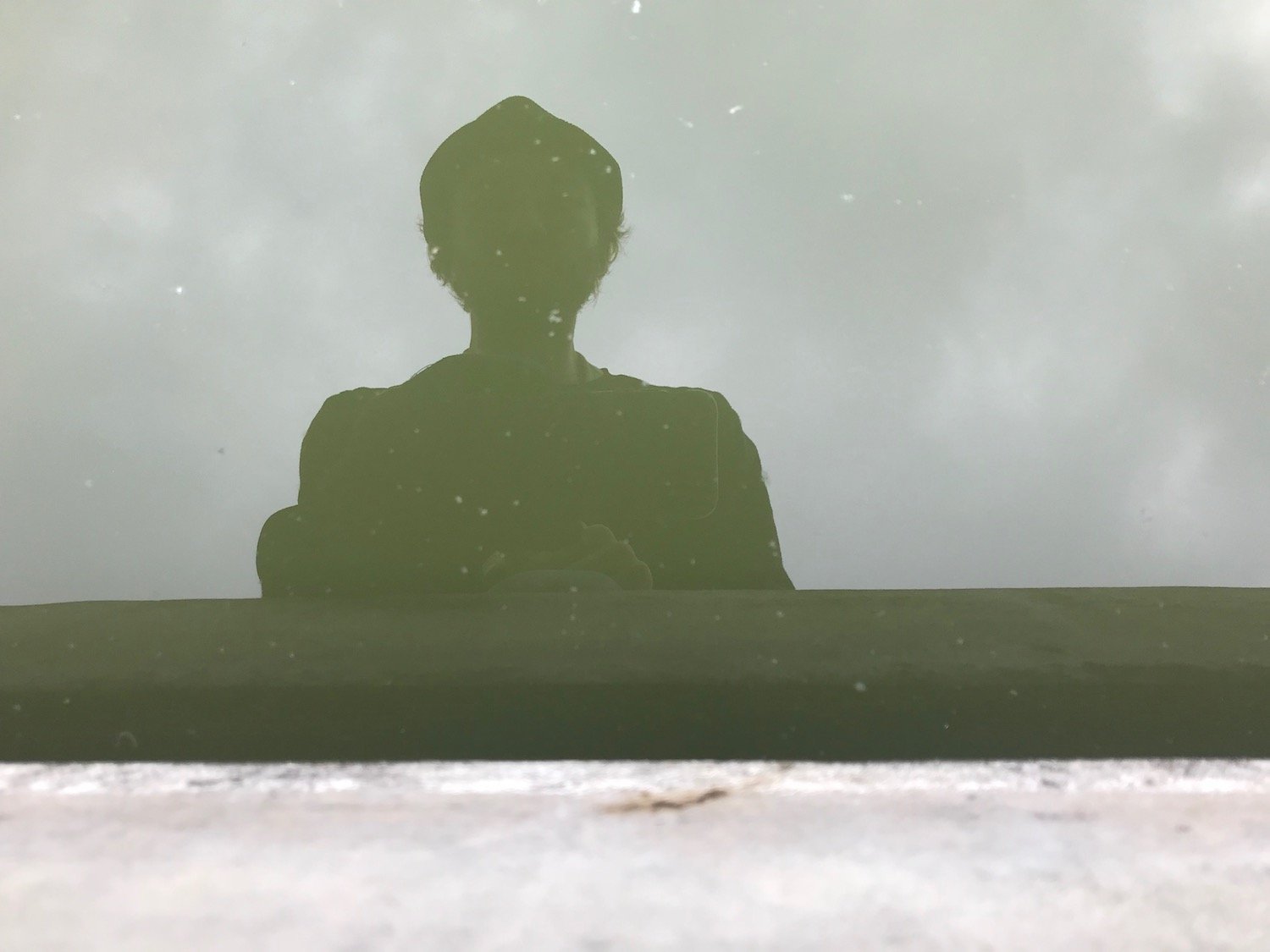
Joined: May 25 2011 Location: Los Angeles, CA Status: Offline Points: 10970 |
 Posted: February 08 2015 at 13:25 Posted: February 08 2015 at 13:25 |
|
Yeah, like I said, keeping up with the changes takes a lot of work. On an additional note: you could keep going between different scales that could all be in the same key. You know how modal scales work. Or the scales could be in their own keys. That, or you can stick with just the same scale for a few chords, much like the jam in the middle of Magma's "Kohntarkosz, pt. 2", where the keyboardist is playing the same R-b2-b3-4-5-b7-R in Eb on top of the three repeated chords.
I'm going to try the former approach since that's where I'm stuck at. I should keep the readers updated with my solo tabs and audio files. I can already imagine myself moving between different shapes and positions of the same chord on the fretboard, playing arpeggios, passing tones, and slides.  Edited by Dayvenkirq - March 16 2015 at 22:28 |
|
 |
|
Dayvenkirq 
Forum Senior Member 

Joined: May 25 2011 Location: Los Angeles, CA Status: Offline Points: 10970 |
 Posted: February 24 2015 at 01:13 Posted: February 24 2015 at 01:13 |
|
Going to Guitar Center tomorrow. My plan:
- key notes - hit them: = passing 1, b3, 5, and b7 (asc. / desc.) with 2nd, 4th, and 6th of the scale; - a unique rhythm (scat-singing, mid-tempo); - soloing with dyads (chords - excl. points), dyad arps, etc. = will dictate the rhythm; - up-slides; - moving/sliding between shapes/positions of a chord; - favorite scales: pentatonic, blues, and natural minor (start with R and 5th) = cut away, be economical; Tracks to improvise to: - Neu! - "Für Immer" - Wishbone Ash - "Time Was" Start off small. Play over one or two chords. Just play the root and the fifth. - follow the chords (a scale/mode for every chord) - figure out the passing tones for every chord. Edited by Dayvenkirq - February 24 2015 at 01:25 |
|
 |
|
UMUR 
Special Collaborator 
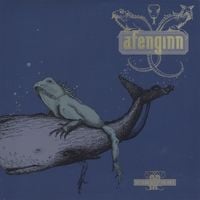
Honorary Collaborator Joined: October 19 2007 Location: Denmark Status: Offline Points: 3010 |
 Posted: February 24 2015 at 03:03 Posted: February 24 2015 at 03:03 |
|
Just playin´ the blues when I pick up my guitar...
|
|
 |
|
Dayvenkirq 
Forum Senior Member 

Joined: May 25 2011 Location: Los Angeles, CA Status: Offline Points: 10970 |
 Posted: February 24 2015 at 05:51 Posted: February 24 2015 at 05:51 |
|
^ Any good?

|
|
 |
|
Michael678 
Forum Senior Member 
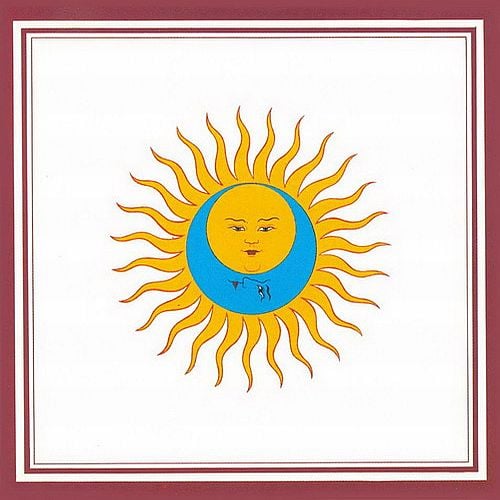
Joined: June 02 2013 Location: United States Status: Offline Points: 2466 |
 Posted: February 24 2015 at 14:27 Posted: February 24 2015 at 14:27 |
|
prog-influenced crap that i usually put in on the drum set. some heavy metal tones with the double-bass. mainly just many time signatures, some tempo changes.... organic sh*t and the usual.
|
|
|
Progrockdude
|
|
 |
|
Dayvenkirq 
Forum Senior Member 

Joined: May 25 2011 Location: Los Angeles, CA Status: Offline Points: 10970 |
 Posted: February 25 2015 at 00:59 Posted: February 25 2015 at 00:59 |
|
^ Sometimes "organic" is good; other times it isn't, I have to admit. Have you had anyone to play with or do you work out to recordings?
It is kind of sad that many of us sit in our homes playing to recordings instead of gathering with real people and playing instinctively and taking turns to create something. ================================================================ By the way, here's something I tweeted about my progress yesterday: - - - - - - - - - - - - - - - - - - - - - - - - - - - - - - - - - - - - - - - - - - - - - - - - - - - - Back from GC: brain's lacking O2. Learned bends 4^5(v4) and b7^1(vb7), simple passing, other tricks. Thanks, @steverothery #learningguitar - - - - - - - - - - - - - - - - - - - - - - - - - - - - - - - - - - - - - - - - - - - - - - - - - - - - That's right: I've decided to stick with the natural minor scale. And by "other tricks" I meant: - Asc./desc. scaling/passing; - ascending-scale tone bends; - Up-/down-slides of m2nd-interval dyads on two strings (just messing around); - Bend-slide: bend two strings of a dyad and slide up; - Strum the same note on two strings - to create a harmonic effect. ================================================================ Plan for today: make use of passing, neighboring, and maybe even changing tones, and suspensions. Also, recreate the techniques I've discovered as mentioned above. Edited by Dayvenkirq - February 25 2015 at 15:24 |
|
 |
|
Dayvenkirq 
Forum Senior Member 

Joined: May 25 2011 Location: Los Angeles, CA Status: Offline Points: 10970 |
 Posted: March 26 2015 at 11:31 Posted: March 26 2015 at 11:31 |
|
I was influenced by a great number of guitar players. The thing is: they come from different schools and play solos in different styles: melodic crossover/soft rock, hard/blues rock, and jazz rock. So, I had to pick a street. I went with melodic crossover and technical bluesy stuff.
Also, I've been keeping this text file where I keep my notes on how to jam making efficient use of the aforementioned devices and more. This is what I have so far (I'll try to keep it simple, though I do have a lot more notes): ============================================= Basics (assuming we are playing bluesy/rocksy stuff): - get the right guitar sound/tone: = preferably: high volume and gain; - prepare some blowing changes; - pick the register for soloing that's right for you (treble; 7th fret and above) ; - write/remember/(learn) some melodies and technical phrases/licks that are in harmony with the changes; ---------------------------------- Jamming ---------------------------------- - 4- or 8-bar long solo - solo scheme (alternating melodic and technical phrases): = melody = throw in some runs and variations: scales, arpeggios, 2-(3-, 4-, w/e-)-note patterns, etc. = melody = throw in some blues licks = melody = play melodic arps (arps with notes of melody on top: passing, neighboring, changing, suspension, retardation) = melody = use tapping = melody = trills = melody - recall/splice best bits: = from different outtakes (in different keys); Edited by Dayvenkirq - March 26 2015 at 23:52 |
|
 |
|
Slartibartfast 
Collaborator 
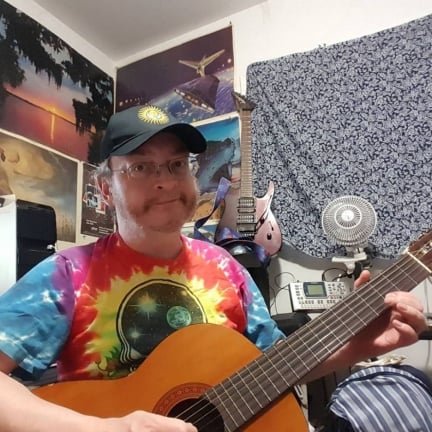
Honorary Collaborator / In Memoriam Joined: April 29 2006 Location: Atlantais Status: Offline Points: 29625 |
 Posted: March 26 2015 at 11:43 Posted: March 26 2015 at 11:43 |
|
Kazoo music and I use my nose... |
|
|
Released date are often when it it impacted you but recorded dates are when it really happened...

|
|
 |
|
Dayvenkirq 
Forum Senior Member 

Joined: May 25 2011 Location: Los Angeles, CA Status: Offline Points: 10970 |
 Posted: March 26 2015 at 12:28 Posted: March 26 2015 at 12:28 |
|
^ For a moment there I was thinking "wazoo music", read "I use my nose", and couldn't put the two together.

|
|
 |
|
hieronymous 
Forum Senior Member 
Joined: December 27 2012 Location: Oakland, CA Status: Offline Points: 308 |
 Posted: April 10 2015 at 14:37 Posted: April 10 2015 at 14:37 |
|
Hi, I meant to respond to your thread much earlier. - I haven't had time to read back through everything posted since then, so I apologize if I repeat what has already been said. I definitely consider myself an improvising musician, though I learned by playing more standard rock, funk, r&b, etc.
I think that playing with other people, especially people better than you, is the most valuable experience. But I love to play along with recordings - it gives an opportunity to dig into the piece deeper than you would than by just listening passively, as well as a palate to experiment and explore over. Ideally, I think it's probably best to learn solos that you like, then incorporate that into your own playing. Another important thing if possible is to record yourself. That way you can go back and review what you played more objectively. Plus it can be a lot of fun! Technology allows us to do all kinds of stuff that was inconceivable without a full recording studio. I'm a bassist - for the longest time I didn't know how to solo, I was good for a few measures, then lost confidence and gave up. The past ten years or so I've finally begun to figure out what to do - part of it was realizing that some of my favorite musicians weren't necessarily technical masters - Muddy Waters for example - and yet if you play with your whole heart then technique doesn't matter. Here's a couple of tracks from when I first started stretching out: Having a harmonic bass to play over definitely helps! That's where pre-recording something or using a looper can be really useful, in addition to playing along with recordings.
|
|
 |
|
Dayvenkirq 
Forum Senior Member 

Joined: May 25 2011 Location: Los Angeles, CA Status: Offline Points: 10970 |
 Posted: April 10 2015 at 14:56 Posted: April 10 2015 at 14:56 |
|
^ Hey, as long as I'm still alive, it's never too late to post.
 Interestingly enough, most of your notes match with some of mine that I've written over the last couple of months. I tweeted a lot about that. You can find my notes under the #AndysImprovNotes hashtag. I keep reading things like "Play with other. It will definitely help you become a better musician." Two things: 1) Unfortunately, the Reno music scene isn't interested in progressive/jazzy/classical/folky improvisation. Let's hope that the Daytona Beach scene (I'm moving to Port Orange in a month and a half) doesn't have it that way. 2) My jamming palette is ridiculously small. Let's hope that I will get better at playing lines, running rhythm changes on spot. I will definitely listen to your stuff on Soundcloud tonight. Edited by Dayvenkirq - April 10 2015 at 14:57 |
|
 |
|
hieronymous 
Forum Senior Member 
Joined: December 27 2012 Location: Oakland, CA Status: Offline Points: 308 |
 Posted: April 10 2015 at 16:14 Posted: April 10 2015 at 16:14 |
|
Yeah, I hope you find some like-minded people to play with! That can be the hardest thing. I've been in Oakland since 2009, finally found a drummer that clicked with me five years later! Unfortunately he had to leave though, so I am bandless at the moment.
I thought of a couple of things that I do to help improve my playing. I've been playing bass (also a little bit of guitar, keys, drums) for over 30 years but I still don't know the fingerboard as much as I would like. So finally I realized that when I come up with a riff or lick, to try and play it in different registers/places on the fretboard. Still don't know the fretboard as well as I like but getting a little better... The good thing is that when you're playing at home there's no pressure so experiment, push the boundaries - figure out what sounds good to you!
|
|
 |
|
Dayvenkirq 
Forum Senior Member 

Joined: May 25 2011 Location: Los Angeles, CA Status: Offline Points: 10970 |
 Posted: April 10 2015 at 16:30 Posted: April 10 2015 at 16:30 |
|
^ Yeah, you are talking about developing motifs/riffs/licks. So many ways to develop an idea. Larry Carlton has some great ideas on how to solo. He's in a few videos that were recorded over at the Guitar Clinic (?).
He also has a great video on how to familiarize yourself with the fretboard. Start by finding and playing the roots of a chord all over the fretboard. Then add the fifths and repeat the process. Do the same with other tones, sticking with that root. Great video. It should be much easier for you to recall the shapes and positions of a scale on your fretboard since a four-string bass in the standard E tuning doesn't have the B- and high E- strings. The pattern of relationship between tones on the board is consistent throughout. Five years? ... Son of a gun. |
|
 |
|
hieronymous 
Forum Senior Member 
Joined: December 27 2012 Location: Oakland, CA Status: Offline Points: 308 |
 Posted: April 10 2015 at 18:01 Posted: April 10 2015 at 18:01 |
What I really need to do is PRACTICE!!!
 But music isn't my main thing. That's partly why I didn't have a band for the longest time - it's hard to find people that have similar commitment levels and that are also good players, let alone people you would want to hang out with! I guess that's why it hurt even more when my drummer left - twice! When the band was together I was motivated to practice a lot - almost every night - and I think it showed in my playing. It also helped that I was expected to solo on almost every song! With no band I find it harder and harder to pick up the ax... But music isn't my main thing. That's partly why I didn't have a band for the longest time - it's hard to find people that have similar commitment levels and that are also good players, let alone people you would want to hang out with! I guess that's why it hurt even more when my drummer left - twice! When the band was together I was motivated to practice a lot - almost every night - and I think it showed in my playing. It also helped that I was expected to solo on almost every song! With no band I find it harder and harder to pick up the ax... |
|
 |
|
ChaoticEmergence 
Forum Newbie 

Joined: April 25 2015 Location: Montreal Status: Offline Points: 24 |
 Posted: April 27 2015 at 21:10 Posted: April 27 2015 at 21:10 |
|
I usually don't play until I feel compelled to because I have an idea of a type of mood I want to explore. Then I mess with the scales and create some random riffs in various octaves. Then I think of the types of chords and scales implied and I try to find musicality in those in a way that I hadn't thought of. I do this until I feel familiar with the type of harmony I'm currently working with. You know how for example when you think about things in major or minor you can spot various moods depending on how you approach it since they are so common. What I try to do is make these things feel more common through exploration. By the time I start writing riffs I already have a good hunch of what I personally want out of a given harmonic approach so when I start improvising over it I test a couple of possible stronger notes hat match my vision and start from there. Eventually I become more comfortable going from a place to the other but I'm not playing a lot. If I wanted to get better, I would just loop some of these riffs and play over them over and over again until I can be as fast as I want. This is not going to happen though, I'm really not dedicated enough to guitar playing. I have lost the flame a long time ago. Luckily even when you lose 95% of the flame, you still keep at least 75% of your technique.
|
|
 |
|
Dayvenkirq 
Forum Senior Member 

Joined: May 25 2011 Location: Los Angeles, CA Status: Offline Points: 10970 |
 Posted: April 27 2015 at 23:31 Posted: April 27 2015 at 23:31 |
|
^ Interesting post. It's nice to see that kind of process described. 1) So, as I understand, before you improvise, you prepare yourself with a handful of riffs and figure out the right notes. I find phrasing to be the most difficult thing to figure out. ("OK, given this selection of notes, how do I weave out a line?") For some reason I find it hard to pull just by sticking with the blues and pentatonic scales. I need some non-chord tones to pass, which is why I favor septa-/octa-tonic scales/modes, keeping in mind that there are moments when I could rely on the hexatonic whole-tone or (altered) Mixolydian (dim whole-tone) scale (especially for resolution). Maybe even a symmetrical diminished. (That's right, I'm tackling jazz in my domain.) 2) Technique- and speed- oriented. You must be a metal player. What techniques do you usually rely on (from the pool of vibrato, legato, alternate picking, cross-picking, etc.)? 3) Random riffs ... speaking of randomness: what extent of freedom do you allow yourself? In other words, how organized or loose is your process of building (a) the form for the improv, (b) the chord progressions, etc.? Edited by Dayvenkirq - April 27 2015 at 23:38 |
|
 |
|
ChaoticEmergence 
Forum Newbie 

Joined: April 25 2015 Location: Montreal Status: Offline Points: 24 |
 Posted: April 28 2015 at 00:12 Posted: April 28 2015 at 00:12 |
|
1) The thing is improvisation is not even the main goal in my process. My main goal is harmonic exploration. One of the reasons why phrasing can be hard is when you overthink key notes so it's better to go by ear. Your ear could not be ready to hear it but the way I do it, it is because I keep exploring until I am familiar. It's probably not very satisfying if you "WANT TO IMPROVISE, AND RIGHT NOW GODDAMMIT!" but since it's not my goal I don't mind, it just helps a lot I think. Regarding the last part, I suggest you learn all inversions of minor, major, 7th, M7, m7, diminished(lol), augmented chords on strings 3-4-5-6 and 2-3-4-5 (4-5-6, 3-4-5 and 2-3-4 for minor and major). That way it will open what potential you see on your neck as well as help you know more quickly where your "anchors" are. Also, if you want to play something else than arpeggios over chord changes, you have to use non chord tones. :) Remember that you are the one who sets the rules in music.
2) I play some metal but I used to be into melodic skatepunk when I started playing guitar and I always wanted music to be faster and faster. Then I discovered shredders. I don't particularly like shred albums because too often they consist of pop chord changes with fast solos but that part was very useful to hone my technique, trying to play Yngwie Malmsteen, Michael Angelo Batio and Bumblefoot stuff. Trying to understand what the f**k was happening in jazz helped me too because most shredders are not very adventurous harmonically speaking. If you play jazz lines, your fingers become used to patterns of fingering that you wouldn't do if you played only "simple" typical 80s shredding. I use whatever technique I feel like using. There are always at least 2 ways of playing things. It's a good exercice to play the same riff using different techniques. I made a guitar arrangement of the left hand of Chopin's Etude #12 Opus #10 and couple of right hand of Bach suites. Playing non guitar music on guitar forces you to think outside the box and find a way to be able to play the unplayable. You can get that too by arranging video game music. You can practice whatever technique you'd like to use. I don't use chicken picking and am rather very bad at playing like say, Adam Fulara. I didn't feel limited enough to practice that and it doesn't matter. You don't HAVE to be able to do everything. 3) All the freedom I want. Sometimes there are rules, sometimes not. I don't consider choices based on taste as rules. Remember I mostly to this to explore and eventually write music, not to improvise or play solos as an end. 4) Sometimes I try to play everything at once (without a pick) and other times I just record tracks and experiment. I do have a band but the only songs that have solos have a very basic harmony and are meant to represent a certain sound so I don't experiment a lot in those. Also maybe 10 years ago sometimes I would compose solos. I would take riffs that I like and play bits of solo and figure out what I wanted to hear and in the end you can play a pre written solo. It's also useful to figure out what you like to hear and play. Hope that helps! |
|
 |
|
Dayvenkirq 
Forum Senior Member 

Joined: May 25 2011 Location: Los Angeles, CA Status: Offline Points: 10970 |
 Posted: April 28 2015 at 01:32 Posted: April 28 2015 at 01:32 |
|
^ Thanks. As per the inversions, duly noted.
|
|
 |
|
HackettFan 
Forum Senior Member 
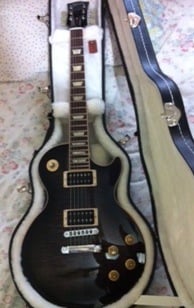
Joined: June 20 2012 Location: Oklahoma Status: Offline Points: 7946 |
 Posted: June 02 2015 at 00:16 Posted: June 02 2015 at 00:16 |
|
I'm not sure how to post this without it sounding like an advertisement, but it's entirely relevant to the thread. There's a pedal out now, the Digitech Trio. I just bought one. You play a chord progression into it and it creates a selection of 12 base & drum lines to go with it based on your chord progression. I've been able to play some pretty unusual scales over it. Ultimately I don't like how it limits you to 4/4 and 3/4 time, but it's an excellent practice tool.
|
|
 |
|
Dayvenkirq 
Forum Senior Member 

Joined: May 25 2011 Location: Los Angeles, CA Status: Offline Points: 10970 |
 Posted: June 03 2015 at 09:36 Posted: June 03 2015 at 09:36 |
|
^ Thanks. Duly noted.
|
|
 |
|
Post Reply 
|
Page <1 5678> |
| Forum Jump | Forum Permissions  You cannot post new topics in this forum You cannot reply to topics in this forum You cannot delete your posts in this forum You cannot edit your posts in this forum You cannot create polls in this forum You cannot vote in polls in this forum |